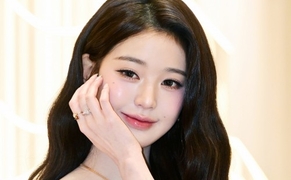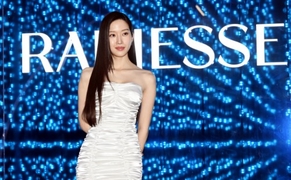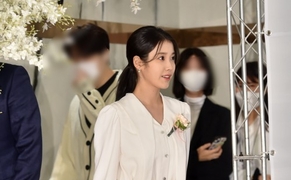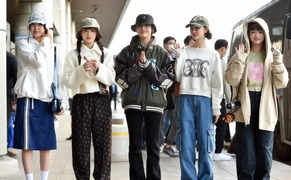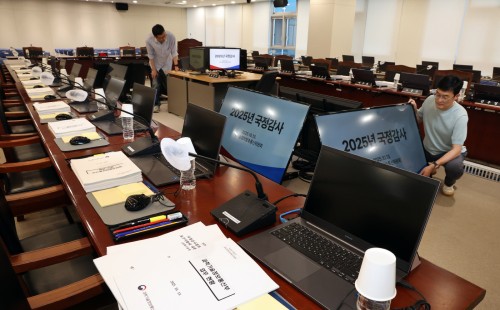 |
| Staff members make final preparations at the parliamentary audit room of the Ministry of Science and ICT at the Sejong Government Complex on October 12, ahead of the first National Assembly audit under the Lee Jae-myung administration. / Source: Yonhap News |
As the National Assembly opens its first parliamentary audit under President Lee Jae-myung’s administration on October 13, all eyes are on whether Supreme Court Chief Justice Cho Hee-dae will be compelled to testify before lawmakers.
The ruling Democratic Party plans to break long-standing convention by refusing to allow the chief justice to leave the hearing early — a courtesy historically granted under the principle of separation of powers — and instead grill him over alleged judicial interference in the last presidential election.
Legal circles warn that such a move could undermine the constitutional foundation of checks and balances by allowing the legislature to encroach on the judiciary’s core function of adjudication.
The Assembly’s Legislation and Judiciary Committee will hold audits of the Supreme Court and the Administrative Office of the Courts on October 13 and 15 at the National Assembly and the Supreme Court, respectively. The committee has named Chief Justice Cho, along with several current and former legal officials, as witnesses — escalating what is expected to be the fiercest confrontation of this year’s audit.
Traditionally, the chief justice offers an opening statement and then departs with the committee chair’s consent. But the ruling party says it will not grant Cho that privilege, arguing the judiciary “interfered in the presidential election.”
The Democrats have claimed that the Supreme Court’s full bench ruling in May, which overturned an acquittal and returned a case involving then-presidential candidate Lee Jae-myung to a lower court with a guilty interpretation under the Public Official Election Act, amounted to judicial meddling in the election. The party is preparing to invoke a “compulsory attendance order” to ensure Cho takes the witness stand.
Many in the legal community say the plan violates the doctrine of separation of powers designed to shield the judiciary from political influence. Critics also accuse the Democratic Party of hypocrisy, noting that during the Moon Jae-in administration in 2018, it had defended then-Chief Justice Kim Myeong-soo from questioning by the opposition — then the Liberty Korea Party — on exactly the same constitutional grounds.
“The decision on whether Chief Justice Cho appears is ultimately his to make,” an official from the Administrative Office of the Courts said.
Most Read
-
1
-
2
-
3
-
4
-
5
-
6
-
7

















